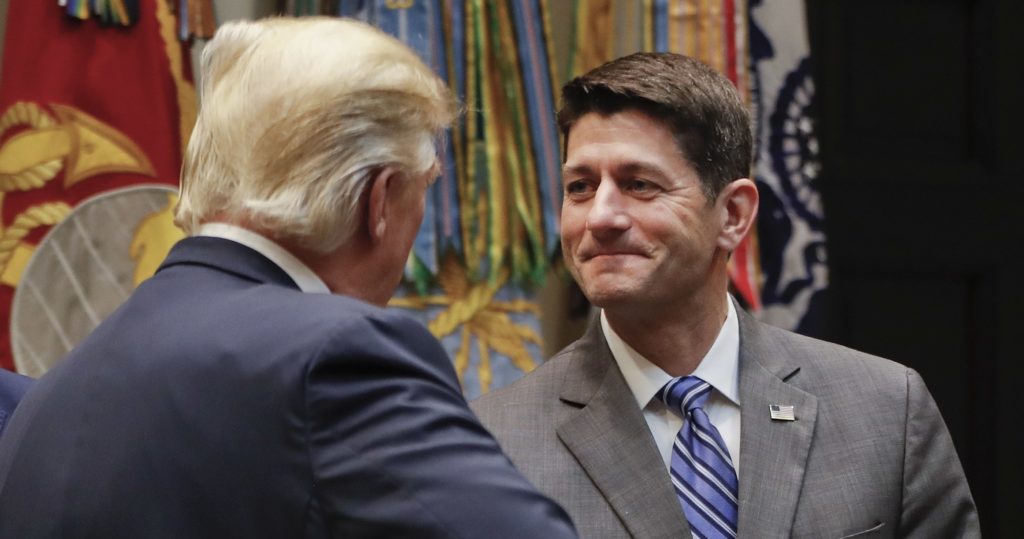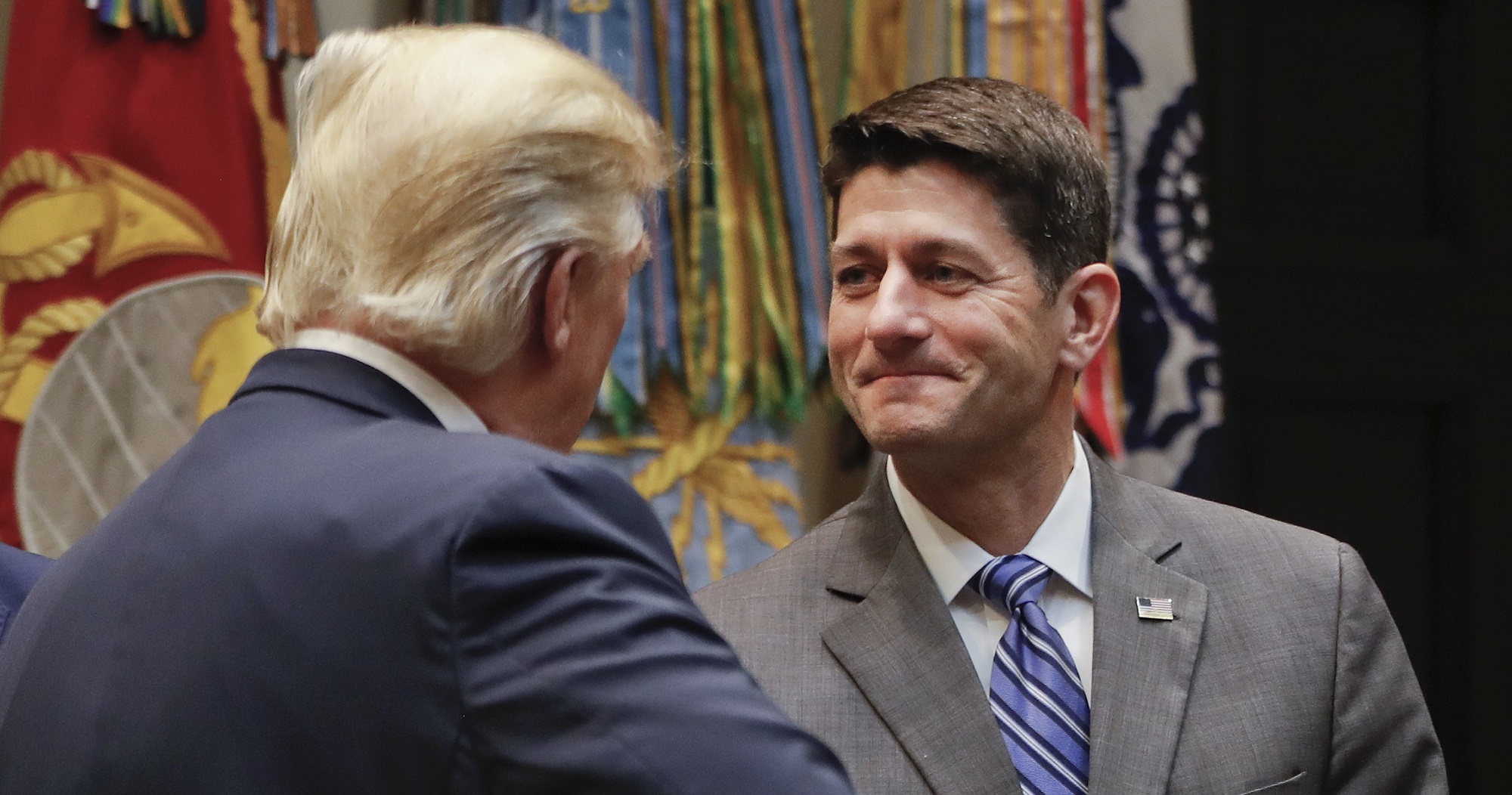
When House Speaker Paul Ryan announced his retirement decision, he did so on his own terms. The political fallout may not be so easy to control.
Ryan’s relinquishing of one of the most powerful positions in Washington left Republicans reeling Thursday over not just who will replace him but whether Ryan’s lame duck status will jeopardize the GOP’s pitch to voters and donors, and worsen their chance of keeping the majority. Control of the House was already at risk in a tough midterm election. Voters are fired up amid rising opposition to President Donald Trump and sagging GOP accomplishments. Now some wonder aloud if the GOP grip on the House majority is already lost.
“It’s like Eisenhower resigning right before D-Day,” said Tom Davis, a former Republican congressman from Virginia who once headed the House GOP’s campaign committee. “Paul Ryan was the franchise,” Davis said. “With Paul, this was a Republican Party they could still give to. He’s a great brand for the party. He’s gone.”
On some level the impact is symbolic. Ryan was once viewed as the future of the party, and he currently is a rudder for a party regularly tossed about by Trump’s shifting impulses. For Republicans fighting for their political survival, it’s hard not to take Ryan’s decision as vote of no confidence. One Republican in the long list of those already retiring, Rep. Ryan Costello of Pennsylvania, said the speaker didn’t try to walk him off his decision, and in fact seemed to identify with his preference for returning home to family. Some four dozen House Republicans, including powerful committee chairmen, are calling it quits. Add Ryan’s retirement to the mix, and donors, lawmakers and strategists are raising red flags about and a prolonged period of uncertainty unlike anything ever seen in modern House history.



